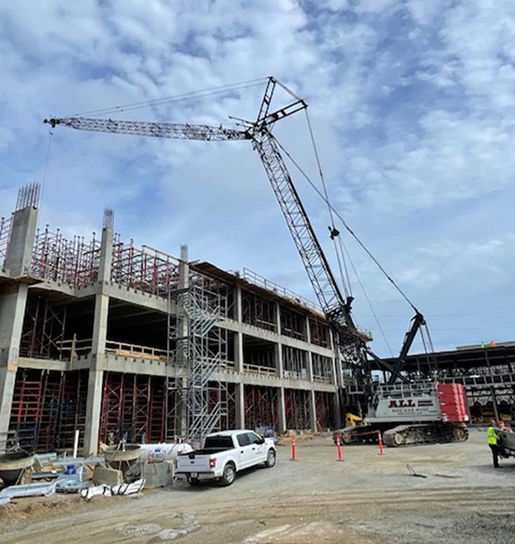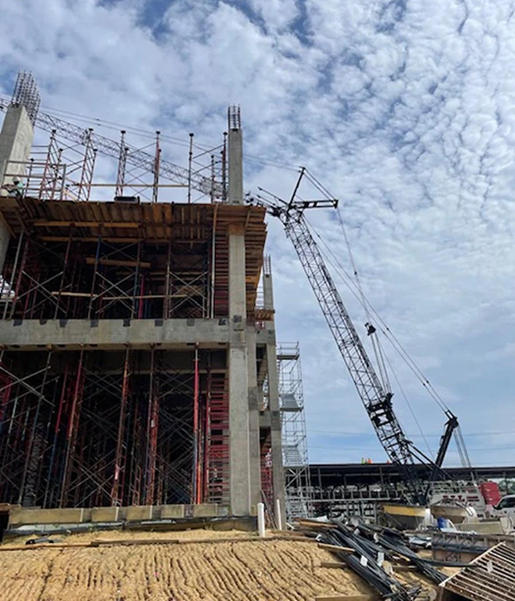
There are two schools of thought on how to handle heavy lifts within tightly confined job sites. First is to choose a large crane, set up far away, and reach up and over. The other option is to go small and get as close to the work area as possible.
Then there are those rare situations in which your crane needs to be small, but still work at an extended radius. That was the challenge confronting ALL Crane Rental of Alabama, a member of the ALL Family of Companies, during construction of the new University of Mississippi Medical Center School of Nursing.
The construction site is adjacent to an active hospital and located within the busy state capital of Jackson, Miss. ALL specified a Link-Belt LS238HSL lattice boom crawler crane. Its 150-ton capacity qualifies it as a smaller crawler in a category that currently tops out at 1,200 tons. The size enables it to fit well in the close confines and effectively set up at all four corners of the new building’s footprint. Meanwhile, being configured with 105 feet of main boom and 130 feet of luffing jib gives it the reach needed to work at a 150-foot radius.
On site from early spring to mid-summer, the Link-Belt’s primary responsibility is lifting buckets of concrete to fill pour-in-place forms for the 106,000-square-foot nursing school. Each bucket weighs approximately 10,000 pounds.
The close, urban setting created logistical challenges for assembling the crane. “There was no room at the actual construction site to lay down crane components,” said Scott Swearengin, sales representative from ALL Crane Rental of Alabama. “Instead, we used a property several miles away to stage loads. We radioed our trucks to deliver the different crane parts as they were needed. When the time comes to disassemble the crane, we’ll reverse the process.”
To prepare, Swearengin asked his branch’s assembly director and a heavy haul truck driver to visit the site ahead of time and assess accessibility and identify build areas. He was also concerned about the degree of slope where trucks and trailers had to enter and wanted confirmation that the transport could cross the threshold without bottoming out.
As larger cranes with impressive capacities have deservedly received many accolades, it’s still good to be reminded of the capability of a smaller workhorse like Link-Belt’s LS238HSL. Swearengin selected it for this job after using 3-D Lift Plan technology to create a virtual site layout. After determining lift radius, finished building height, load, and crane set-up positions, it became clear that the LS238HSL was the machine that was the best fit.
“It had the capacity and reach to achieve project objectives while staying below the required percentage of capacity,” said Swearengin. “A benefit of having a large toolbox – in this case, the broad fleet of ALL – is that more than likely, you have the right tool for the job.”

